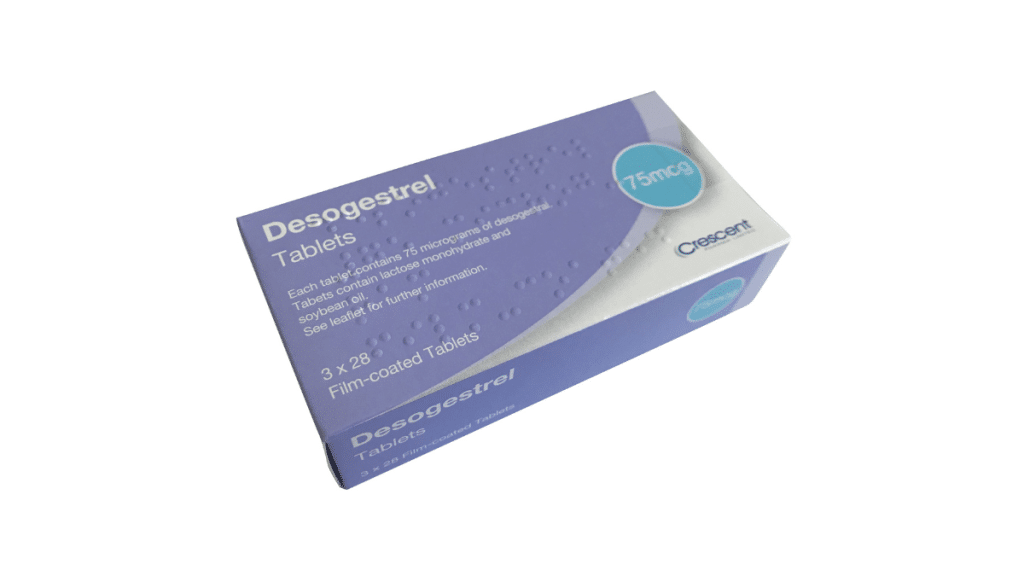Introduction to Desogestrel
Desogestrel is a synthetic progestogen that plays a pivotal role in hormonal contraceptive methods, particularly as an active ingredient in the mini pill, also known as the progestin-only pill (POP). In the United Kingdom, its popularity has surged due to its effectiveness and lower risk of certain side effects compared to combination oral contraceptives. Understanding how desogestrel works, its benefits, and potential drawbacks can empower users to make informed decisions about their reproductive health.
What is the Mini Pill?
The mini pill is a form of birth control that contains only progestin, distinguishing it from combination pills that include both estrogen and progestin. This makes the mini pill an ideal choice for women who may be sensitive to estrogen or have medical conditions that contraindicate its use.
Key Characteristics of the Mini Pill:
– Single Hormone: Contains only progestin (desogestrel in this case).
– Daily Dosing: Must be taken at the same time every day for optimal effectiveness.
– Less Hormonal Fluctuation: Fewer side effects related to estrogen.
How Does Desogestrel Work?
Desogestrel primarily prevents pregnancy through three mechanisms:
1. Inhibition of Ovulation: It suppresses ovulation by preventing the release of eggs from the ovaries.
2. Thickening of Cervical Mucus: It thickens cervical mucus, making it difficult for sperm to enter the uterus.
3. Alteration of Endometrial Lining: It changes the lining of the uterus, reducing the likelihood of implantation should fertilization occur.
These mechanisms work together to provide effective contraceptive protection, with studies showing desogestrel’s efficacy rates are comparable to those of combination pills.
Benefits of Using Desogestrel
Choosing desogestrel as a contraceptive method comes with several benefits:
– Highly Effective: When taken correctly, desogestrel is over 99% effective in preventing pregnancy.
– Lower Risk of Blood Clots: Unlike combination pills, desogestrel has a reduced risk of venous thromboembolism.
– Shorter Return to Fertility: Fertility can return quickly after discontinuation.
– Menstrual Regulation: Some users report lighter periods or fewer menstrual symptoms.
– Fewer Hormonal Side Effects: Many users experience fewer mood swings and weight gain compared to traditional combination pills.
Potential Side Effects
While desogestrel is generally well-tolerated, some users may experience side effects. It’s crucial for individuals considering this method to be aware of possible reactions:
– Irregular Bleeding: Spotting or changes in menstrual cycles are common during initial use.
– Headaches: Some users may experience headaches or migraines.
– Breast Tenderness: Tenderness or swelling in breast tissues can occur.
– Nausea: Mild nausea may affect some individuals shortly after starting.
Most side effects tend to diminish over time as the body adjusts.
Who Should Consider Desogestrel?
Desogestrel can be an excellent option for various individuals:
– Women who are breastfeeding, as it does not affect milk production.
– Those who have contraindications for estrogen use due to medical history (e.g., hypertension, thrombosis).
– Individuals who prefer a hormone-only method without estrogen-related risks.
Considerations Before Starting:
Before beginning desogestrel, it’s advisable to consult with a healthcare professional who can assess individual health needs and discuss any potential interactions with other medications.
How to Use Desogestrel Effectively
To maximize the effectiveness of desogestrel, proper usage is essential:
– Daily Intake: Take one tablet at the same time each day without breaks between packs.
– Consistency is Key: If taken more than three hours late, additional contraceptive measures should be considered for at least 48 hours.
Steps for Proper Use:
1. Choose a time that fits your routine (e.g., morning or night).
2. Set a daily reminder on your phone or use an app dedicated to medication tracking.
3. Keep extra packs on hand for convenience while traveling.
Missed Doses and What to Do
Life can be unpredictable; hence knowing what to do if a dose is missed is crucial:
1. If you miss a dose by less than 3 hours, take it as soon as you remember and continue your schedule as normal.
2. If you miss a dose by more than 3 hours:
– Take the missed pill immediately upon realization.
– Use additional contraception (e.g., condoms) for at least 48 hours.
– If you’ve had unprotected intercourse during this period, consider consulting a healthcare provider about emergency contraception.
This protocol helps maintain contraceptive effectiveness even when life gets hectic.
Frequently Asked Questions
Is desogestrel suitable for everyone?
While many can benefit from desogestrel, those with certain medical conditions should consult their healthcare provider first.
Can I take desogestrel if I smoke?
Smokers over the age of 35 may face increased risks; therefore, it’s essential to discuss this with a healthcare professional.
How does desogestrel affect my cycle?
Many women experience lighter periods or irregular bleeding when first starting desogestrel; however, these symptoms often stabilize over time.
Will desogestrel protect against STIs?
No, desogestrel does not provide any protection against sexually transmitted infections (STIs). Barrier methods like condoms are recommended alongside hormonal contraception.
Final Thoughts on Choosing Desogestrel
Understanding desogestrel offers UK users valuable insights into managing their reproductive health effectively. With its unique properties and advantages as a mini pill option, it caters well to those seeking reliable contraception without the complications associated with estrogen-based methods.
As always, thorough discussions with healthcare providers can ensure that users select the best contraceptive method tailored to their needs and lifestyle—empowering them not only in their reproductive choices but also enhancing their overall well-being. Embracing this knowledge equips individuals with confidence in navigating their health journey while considering options like desogestrel in their family planning strategy.


